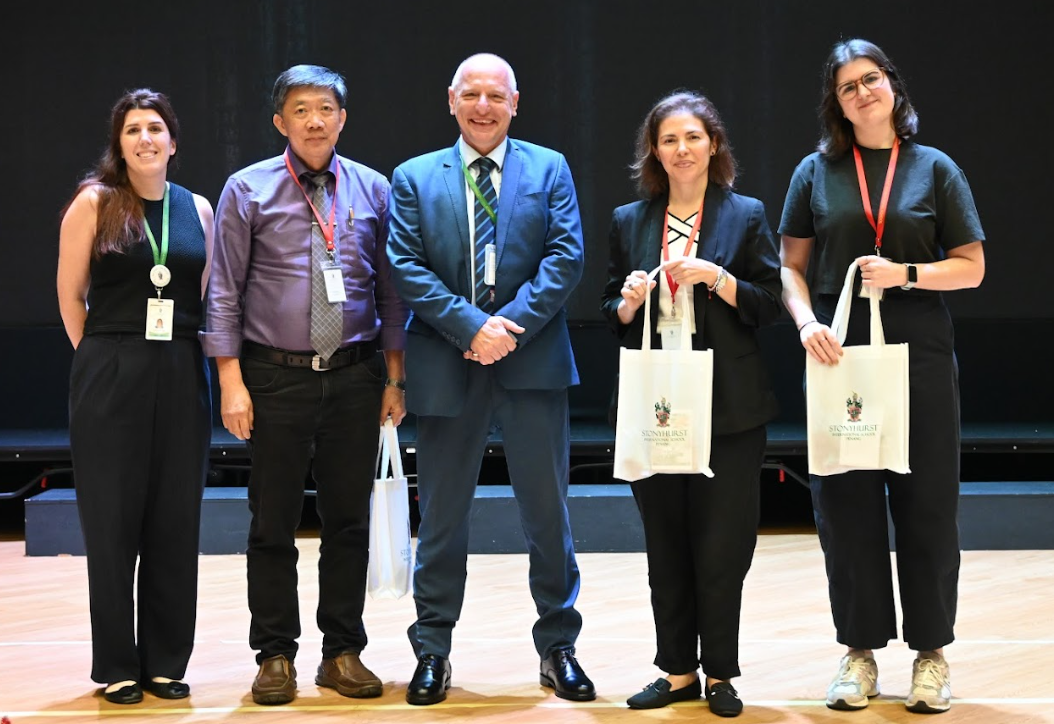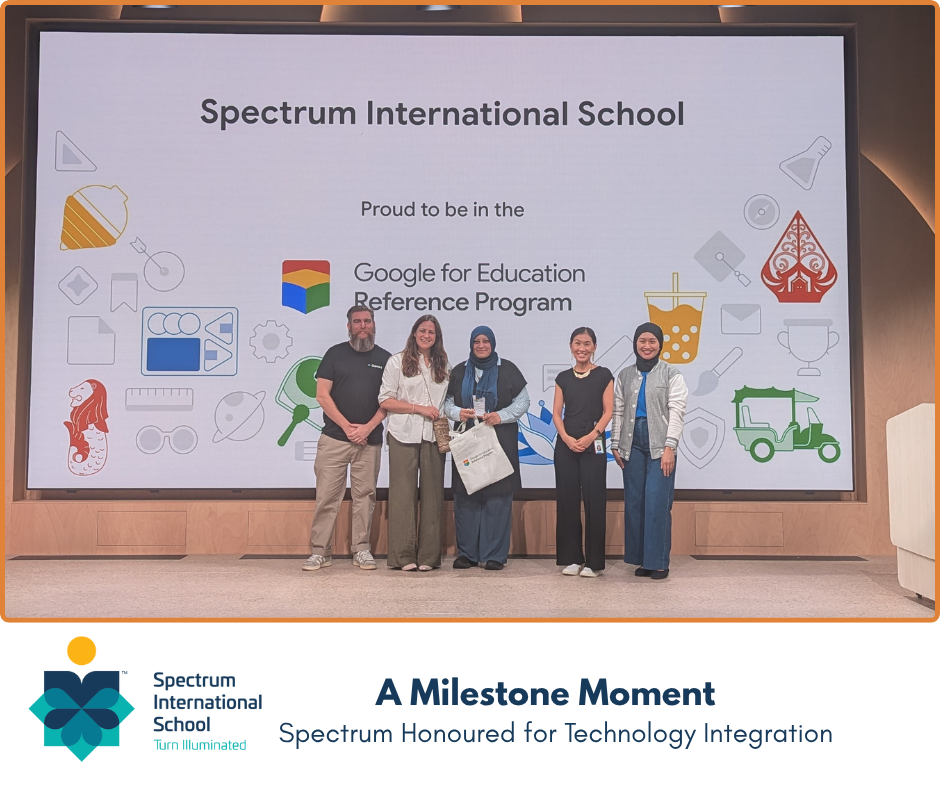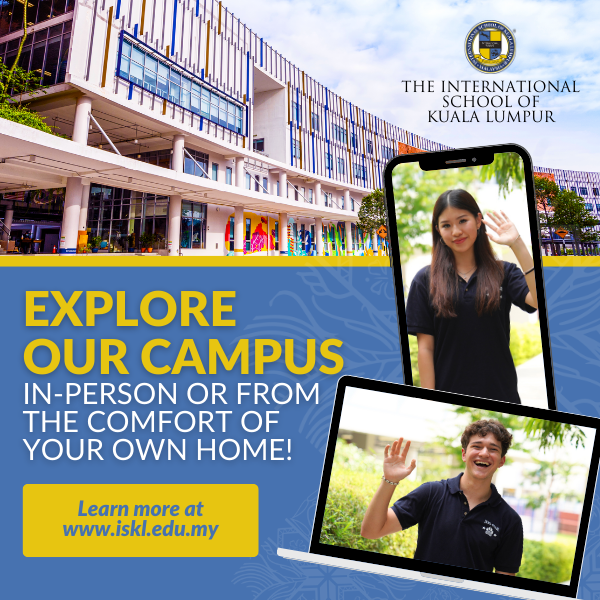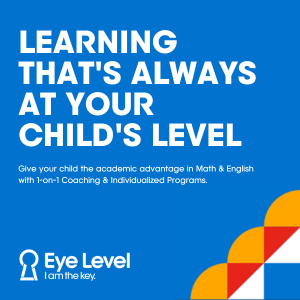
Education Destination Malaysia had the privilege of speaking to Ms Kothai Chidambaram, the principal of elc International School, Cyberjaya, on the subject of learning in the age of artificial intelligence and whether there is any cause for concern. She shares her insights and experience, shedding light on the school’s philosophy and guiding principles in education.
The conversation touched upon diverse facets of learning, the role of Artificial Intelligence (AI) in modern education, the nurturing of essential qualities in students, and the preparation for a future shaped by AI and automation. We also explored how elc International School is not just about the pursuit of academic excellence but about shaping individuals who will thrive in an ever-changing world.

What Is Learning All About?
According to Ms Kothai, “Learning is a process through which we acquire new knowledge, skills, and behaviours that help us understand the world and the people around us. It's a fascinating interplay of various internal processes: perception, attention, memory, retention, comprehension, association and even motivation and emotion, to name a few.” She emphasised that learning is not just about accumulating facts but mastering the art of thinking, adapting, applying knowledge, and connecting the dots.
For instance, parents rush to enrol their children into coding classes, firmly believing that it is the key to keeping up with ever-evolving tech trends. However, not many understand that coding is not all about memorising lines of code but rather what children truly learn when coding which is how to think critically and solve problems. Ms Kothai explains that learning code is not merely about the code itself; it’s about cultivating these internal processes and developing these skills inside your brain, like problem-solving, memory, paying attention, application, and association among others. These skills you learn while coding are handy, not only for coding but for solving all sorts of problems in life. The same goes for any subject you learn.
Ms Kothai believes that there is much more to learning than what can be quantified and the real magic of learning happens within the heart and mind of the student during those “AHA” moments, where connections and insights cannot always be measured by a grade or mark. While conceding that external outcomes, such as grades and test scores, offer a standardised way to assess performance, Ms Kothai draws attention to what is truly important through a quote from Einstein, who famously said, “Not everything that counts can be counted, and not everything that can be counted counts”.
She noted that while external outcomes are valuable, they do not tell the whole story. It’s a question of finding the right balance between what can be counted and what truly matters when it comes to a student’s learning journey.

AI and Learning
When asked about her views on AI and its impact on education, Ms Kothai noted that while AI does indeed play a significant role in education, it is primarily a supportive tool. She then further explains through a scenario that when parents or tutors do the homework for their children or when students copy answers from their friends, sure it gets them the marks but did they really learn from it? The same can be applied to AI - it should assist us in our learning, not do it for us.
The impact of AI on learning is the transformation of the educational journey into an exciting adventure, with students as the main protagonists. Ms Kothai stresses that students should remain in control, with AI as their reliable assistant making learning more efficient and enjoyable. AI tools are to help make learning more efficient, but students should not forget to actively participate in their own learning journey as this is how they will get that profound, in-depth understanding of what they are studying.
Ms Kothai constantly reminds her students to use AI as a study tool and not a crutch. She uses a funny analogy where students are to imagine learning as if it were a detective movie and they are very much like the brilliant detective, Sherlock Holmes with AI as their trusty sidekick Watson. If they let Watson steal the spotlight and become the detective, Sherlock will start to fade out of the main picture. She then reminds them to be Sherlock Holmes in their learning journey with Watson or AI as their reliable helper in making educational mysteries easier to investigate and resolve.
One major concern that Ms Kothai has is the risk of her students becoming passive learners from too heavy a reliance on AI. She discusses the importance of using AI as a tool, not a crutch, to continuously maintain the essence of learning, which encompasses authenticity, experience and innovative thinking. She noted that she does not want her students to miss those “AHA” moments that come from connecting ideas and making smart decisions. Learning is not a one-time deal; it's about revisiting, thinking differently, connecting the dots and igniting new ideas.
Student Success at elc International School
At elc International School, the evaluation of success extends far beyond mere academic achievement. While academic excellence is highly valued, Ms Kothai explains that their approach to assessing success encompasses a multifaceted perspective. A student’s success is not only measured on the basis of the results they bring in but also on character development and essential life skills. Ms Kothai emphasised that the school’s goal is clear – they want their students to be ambitious, not entitled; confident and not arrogant. Striking the right balance among students is essential so that they understand the value of their self-worth without diminishing the worth of others.

Preparing Students for their future endeavours
Encouraging critical thinking, creativity and intrinsic motivation is paramount in the educational philosophy at elc International School. Ms Kothai believes that fostering these qualities is a necessity, as they shape students to be adaptable and successful, enabling them to make a positive impact in the real world.
Ms Kothai acknowledges the need to rewrite curricula to accommodate AI in teaching and learning in the future, as the manner in which some aspects of learning and progression are being tested and measured do not account for this new technology. However, at elc, they aim to have students emulate Sherlock Holmes, leading their learning journey with AI as their companion in assisting them in efficiently and effectively investigating and resolving educational mysteries.
When asked how international education at the primary and secondary levels prepares students for tertiary education, Ms Kothai said that what was important was how students perceive learning. It is not only about acquiring knowledge from books. Equally important, was the nurturing of life skills within the learning environment.
Student Support at elc
The educational philosophy at elc is rooted in character development, compassion and a deep understanding of oneself and the world. Ms Kothai pointed out that their teachers are fully committed to this philosophy – shaping young minds into kind-hearted and empathetic individuals whilst equipping them with timeless values that will guide them throughout life.
When asked about students with diverse needs, Ms Kothai explained that while they would like to provide as much support as they can for these students, there are certain financial and practical limitations. She noted that students with diverse language backgrounds must meet a minimum English proficiency standard to be admitted to the school. However, the school understands that every student is unique and their language proficiency levels may vary. Thus, elc provides additional support for students who meet the basic academic requirements but require assistance to catch up with their language skills.

Advice for Parents Looking for an International School
When asked about advice to parents seeking an international school education for their children, Ms Kothai emphasised that parents should remember two things – respect and resilience. Respect fosters kindness, compassion, an appreciation of diverse viewpoints and a celebration of diversity, while resilience enables children to handle challenges and learn from their mistakes. The school that emphasises respect and resilience prepares children for a future filled with confidence and equip them with the ability to adapt to an ever-changing world.













![[elc International School] NO SHORTCUTS: WHY THINKING STILL MATTERS](https://mint-edm.sgp1.digitaloceanspaces.com/production/XTvbqZxxQQxUHjyDcClxCortA5SxNs.png)






















